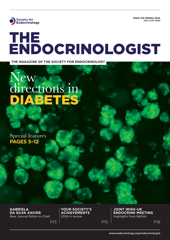While multiple endocrine neoplasia type 2 (MEN2) is well understood at a genetic level, its real-world impact on patients and families is often overlooked. In this mini-review, Brain et al. go beyond molecular mechanisms to explore the lived experiences of patients with MEN2A/B through four case studies.
They highlight the critical role of RET genetic screening, along with calcitonin monitoring, in enabling early diagnosis and intervention, while also revealing challenges in cascade testing, particularly in non-nuclear families. They illustrate how genotype–phenotype correlations are not always predictive, with unexpectedly aggressive cases requiring additional genetic testing, and discuss how gastrointestinal symptoms in infancy can signal MEN2B, prompting early thyroidectomy to prevent metastatic disease.
The study also underscores the under-appreciated psychosocial burden of MEN2, including anxiety, uncertainty and lifelong monitoring. Parents describe the challenges of navigating a rare, hereditary cancer syndrome, emphasising the need for holistic, patient-centred care. The case studies reinforce the need for specialist expertise in managing both medical and psychological aspects of the disease.
Overall, this review highlights the importance of addressing not just the medical complexities of MEN2, but also its impact on quality of life, offering useful insights for healthcare professionals working with hereditary endocrine disorders.
Read the full article in Endocrine-Related Cancer 32 e240130 https://doi.org/10.1530/ERC-24-0130






